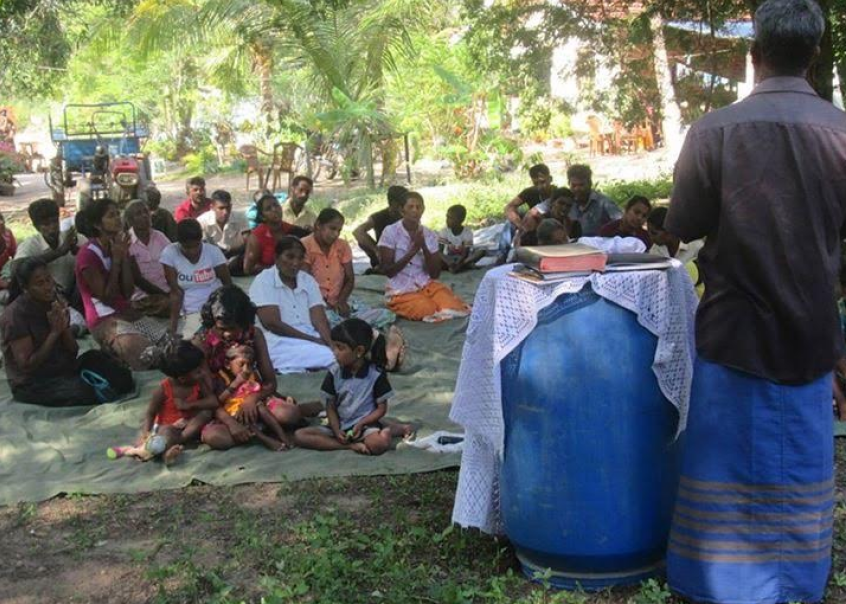Violent attacks on Christians are surging in Sri Lanka this year with more than 20 separate incidents in the last six months.
A parallel rise in violence against Muslims prompted a call by the Christian Evangelical Alliance of Sri Lanka for the government to protect minority religious groups, according to World Watch Monitor.

The attacks are blamed on a Buddhist nationalist organisation known as Bodu Bala Sena (BBS) or the 'Buddhist Power Force'.
Police are hunting for the group's controversial secretary general, the Venerable Galagoda Aththe Gnanasara Thero, who is in hiding.
A video message released by the group on Sunday denied it was behind the attacks while at the same time blaming the government for allowing Muslim extremism to flourish.
'Within a decade or two, Buddhism will be under serious threat in Sri Lanka,' said spokesman Dilanthe Withanage according to the persecution watchdog.
'If we want to resort to extremists, violence or terrorism, we have the power and the strength to do it. But we will never resort to such things.'
The rise in violence comes less than a decade after the small island country emerged from a bloody 25-year civil war that left between 70,000 and 80,000 people dead.
The country is largely Buddhist and many see that 'to be Sri Lankan is to be Buddhist' but there are several minority faiths including Christianity (seven per cent of the population), Hinduism (12 per cent) and Islam (nine per cent).
The Christian Evangelical Alliance says the government's law requiring new places of worship to register is used to target Christians and shut down churches, according to World Watch Monitor.













